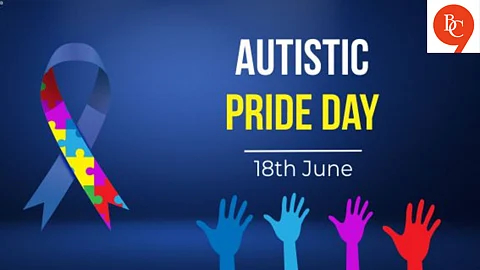

But unlike awareness days that focus on challenges or deficits, Autistic Pride Day flips the narrative. It’s not about sympathy—it’s about identity, empowerment, and visibility. It’s about saying: We’re not broken. We’re just wired differently.
What Is Autistic Pride Day?
Started in 2005 by the autism rights group Aspies for Freedom, Autistic Pride Day was created by and for autistic people themselves—not caregivers, not doctors, not organizations. Think of it as the Pride Month of the neurodiverse world.
The core idea? Autism is not a disorder. It’s a difference.
Autistic Pride Day encourages people to:
Embrace their neurodivergent identity
Reject the stigma around social or sensory differences
Advocate for inclusion—not just in theory, but in everyday life
Autism Isn’t a Tragedy—Lack of Acceptance Is
We still live in a world where “functioning labels” like high-functioning or low-functioning reduce people to stereotypes. Where autistic adults are often overlooked in the workplace. Where sensory-friendly public spaces are rare. Where children are taught to "mask" their traits to fit in.
But Autistic Pride Day says: You don’t need to change who you are. Society needs to change how it sees you.
Autistic Pride in Daily Life: What It Really Looks Like
You don’t need a parade or a press release to celebrate neurodiversity. Here's what real, everyday inclusion can look like—at home, at work, and in relationships:
1. At Home: Redefining “Normal”
Give your autistic child or sibling permission to stim, to take sensory breaks, to eat the same food on repeat—without shame.
Understand that meltdowns aren’t tantrums. They're nervous system overloads, not disobedience.
Celebrate their special interests. Whether it's trains, maps, insects, or anime—passion is powerful.
Pride starts where understanding begins.
2. At Work: Beyond Tokenism
Hire neurodivergent people for their strengths, not just to “check a box.”
Provide accommodations without judgment—like flexible hours, quiet spaces, or written instructions.
Challenge the culture of “soft skills = superiority.” Eye contact, small talk, and networking are not the only markers of competence.
Want to support autistic pride? Start by unlearning neurotypical bias.
3. In Friendships and Relationships: Embrace Differences
Autistic people feel deeply, even if they express it differently.
Some prefer direct communication. Some don’t enjoy parties. Some avoid phone calls.
That’s not coldness—it’s just a different operating system.
Love isn’t about changing someone to suit your comfort. It’s about learning their language and meeting them where they are.
Representation Matters: From Stereotypes to Real Stories
For years, autistic representation in media was reduced to two extremes: the “troubled genius” or the “socially inept weirdo.” But today, a shift is happening—thanks to autistic creators, actors, authors, and advocates who are telling their own stories.
Shows like Everything’s Gonna Be Okay, Atypical, or even TikTokers sharing sensory hacks are normalizing diversity in the most powerful way—by showing authentic lived experience.
Autistic Pride Day is a reminder that being different doesn’t mean being less. It’s about dignity, identity, and freedom. Not just for autistic people—but for all of us who’ve ever felt like we had to “act normal” to be accepted.
In a world that often values sameness, neurodivergence is radical authenticity. And that, more than anything, is something to be proud of.
